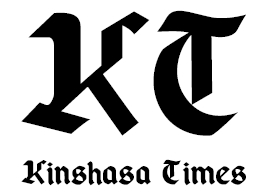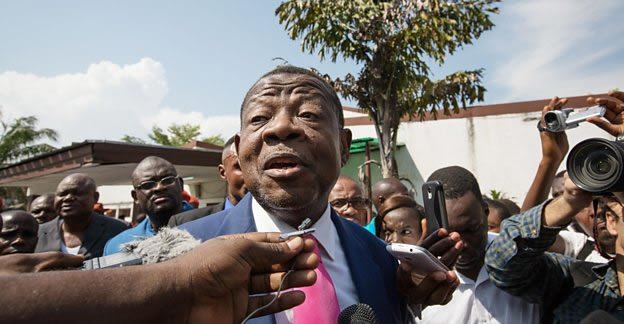New legislation in DR Congo will impose strict curbs on foreign-owned broadcast media.
The move comes amid an ongoing political crisis, and officials have justified it by citing security imperatives.
Influential French radio
The law – signed by Media Minister Lambert Mende (pictured above) – is seen by some as an attempt to counter the influence of French world broadcaster Radio France Internationale (RFI), says Actualite.cd news website.
RFI is a popular and influential source of news, and its local FM relays have been cut by the authorities at times of political tension.
Under the new rules, foreign radios can only broadcast their output « intermittently », and even then only in partnership with domestic stations.
Until now, RFI and the BBC have been running full-time relays on FM in Kinshasa and elsewhere.
Mr Mende says foreign-owned outlets have 30 days to meet the requirements.
He told Actualite.cd that « we have allowed a foreign radio like RFI to come and establish itself here without broadcasting via a Congolese radio [partner] ».
He added: « If a Congolese citizen wants to operate in France, they are obliged to create a French registered company. We therefore also demand the same is done here. »
Effectiveness
The move comes amid an ongoing political crisis, with the opposition alleging that President Joseph Kabila is trying to manipulate the electoral system to stay in power.
In recent weeks, the government has been blocking FM signals of UN-backed Radio Okapi in Kinshasa and has closed RFI relays in Kinshasa and Lubumbashi.
But there are doubts about the effectiveness of the authorities’ actions.
Kinshasa listeners can still hear RFI on FM from across the Congo River in Brazzaville – the capital of the neighbouring Republic of the Congo, says private station Radio-TV Nyota.
Meanwhile, the growth in internet availability is making foreign media content increasingly accessible.
Radio is the main form of media in DR Congo, with state-owned RTNC and Radio Okapi being the main national networks.
By BBC Africa


